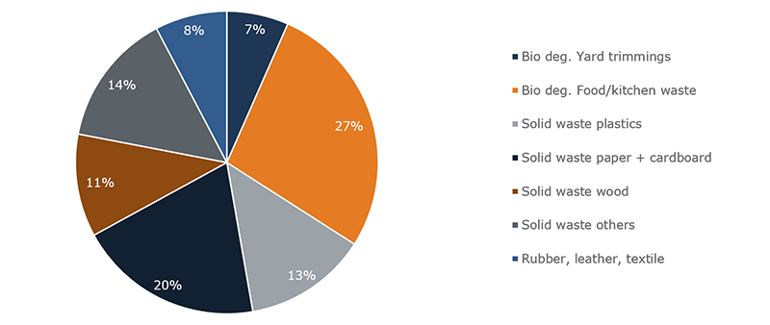The grey waste stream that originates from households still contains organic material. Once in the typical black bag, the organic materials such as food residues, coffee grounds or tea mix with the other waste such as tissues and plastics. This polluted waste is called the Organic Fraction of Municipal Solid Waste (OFMSW). Although contaminated, this waste stream can be quite valuable when the organics and inorganics are separated.
Composition of MSW in Europe
Despite government efforts to collect organic household waste separately, the amount of organics in MSW in Europe has not declined much in the past years. Around 30% of house hold consists of bio-degradable food waste.

OFMSW as a valuable feedstock for biogas
OFMSW is often incinerated for alternative energy as the organics are polluted with other waste streams. However, with new possibilities in the separation of waste streams, it becomes more attractive to segregate the organics and process it into biogas. Among biological treatments, anaerobic digestion of biodegradable wastes is frequently the most popular and cost–effective, due to the high energy recovery and low environmental impact. This can be realized by applying new separation techniques.
Also read: Turning mixed waste into energy: Separate organics from solid and fibrous waste
The high calorific material in OFMSW
After separating the organics, the dried inorganic material (RDF) remains. This fraction is often used for incineration. Retrieving both (RDF) and organic waste from OFMSW allows one to yield more energy from the fraction in the form of alternative energy and biogas. The separation and digestion of polluted fractions has now become a serious option to be explored by waste incinerators in the circular economy.
Want to read more about topics related to waste separation and the latest insights into the various techniques and innovations? Subscribe to our blog at the top of this page.

